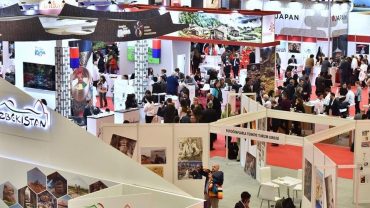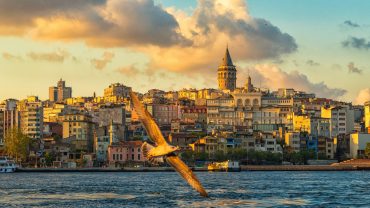Gümüşhane or Gyumushkhana, Argyrópolis or Arghyropolis, (Αργυρόπολις in Greek) is a city and the capital district of Gümüşhane Province in the Black Sea region of Turkey. The city lies along the Harşit River, at an elevation of 5,000 feet (1,500 m), about 40 miles (64 km) southwest of Trabzon. According to the 2010 census, population of Gümüşhane urban center is 28,620. The district covers an area of 1,789 km2 (691 sq mi), and the city lies at an elevation of 1,153 m (3,783 ft).
History
It is suggested that the ancient Thia (Θεία in Greek, a settlement of Roman, Late Roman and Byzantine periods) was located 4 miles west of modern Gümüşhane, in modern Beşkilise. In Byzantine period, there was a town named Tzanicha or Tzantzakon (Τζάνιχα, Τζάντζακον in Byzantine Greek) means land of Zan / Laz people, possibly located 2 miles (3.2 km) to the west of Gümüşhane.
Around 840 AD, the area was included in the new Roman (Byzantine) province of Chaldia (Χαλδία). It was later ruled by the Byzantine Empire of Trebizond.
During Ottoman years, the sanjak of Gümüşhane fell under the administration successively Rum Province, Erzurum Province and Trabzon Province, and was divided into four kazas: Gümüşhane, Torul (capital city Ardassa), Şiran (Cheriana), and Kelkit (Keltik).
The sanjak in which Gümüşhane was situated at some stage comprised 37 mines of argentiferous lead and six copper mines. There is no evidence that these mines were in use during Byzantine times.
As for the name of the city during the Ottoman period, Greek-speaking population was also using the name Gümüşhane (Γκιμισχανά and Κιουμουσχανά) but, in the first decades of 19th century, the hellenized form Argyrópolis (Αργυρόπολις, from argyros “silver” and polis “city”) was established.
The Arghyropolis belonged to the Diocese of Chaldie (145 communities, 77,845 inhabitants). During the 1914-1918 Persecution of Greeks, the Turkish authorities boycott the Christians. The boycott deprived the Christians of all they possessed and reduced them to absolute poverty. The organizer of the boycott was the Djemal Azmi, Vali of Trebizonde, under whose orders were the Governor of Arghyropolis and others. In the sterile region of Argliyropolis the distress was great, because the inhabitants were entirely dependent for their existence on their local trade, and that from Russia. General mobilization was also among the causes conducive to the ruin of the Greek speaking communities, for the male inhabitants who supported their families were taken away from their homes. The Turkish officers treated the Greek speaking population in a brutal way, making many Greekophones to desert. This was the situation before the Russian advance.
The Russian advance gave rise to a fresh outburst of fanaticism against the Greek element, the Turks from Turkish villages plundered the Christian villages of the region. During the Turkish retreat, the Turks pillaged many Greekophone villages of the region, the inhabitants took to the mountains and their property was plundered. Later on the retreat of the Russians, the Turks returned and the few inhabitants that remained in these villages, deprived of all resources and left to die of hunger.
Geography
Gümüşhane is surrounded by high mountains, Zigana-Trabzon Mountains to the north, Çimen Mountains to the south, Giresun Mountains to the west and Pulur, Soğanlı Mountains to the east. Trekking is popular sport is at these mountains. Mount Zigana has a ski center on it and it is a well known tourist destination for winter sports. Abdal Musa Peak (3331 m.) is the highest peak within it. The main trees in the forests are Scotch pine and fir, and there are many animals and birds in the area. There are many lakes such as Karanlık Göl, Beş Göller, Artebel Gölü, Kara Göller which are at the peak of Gavurdağı Mountain, and are preserved as natural parks. All these mountains compose 56% of the area of Gümüşhane province.
Climate
Gümüşhane has a humid continental climate (Köppen climate classification: Dsb on the border Dfb) with cold and snowy winters and warm summers. In the height of summer; July and August, temperatures at midday usually surpass 28 °C, summer nights tend to become very cool due to the high elevation of Gümüşhane, and in winter temperatures usually plummet to -10 °C and even go as low as -20 °C occasionally.






Comment (0)